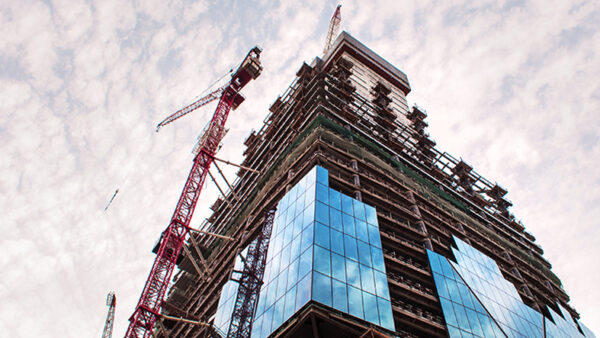I have worked for a main contractor, subcontractor and, for my sins, I married a PQS, so I’d like to think I have a bit of an idea around how late payments work – though, as always, I’m happy to be corrected.
In the worst case scenario, main contractors withhold money from subcontractors so that they can invest/buy land. “Evil main contractors!” I hear you say? Well no, not always. Whilst some companies do this as part of a deliberate business model, many others are being forced back down a route that was largely abandoned in better times due to the clients’ ever increasing pressure to reduce costs. This means profit margins are slashed, and the retention of payment is the only way to make money.
Evil clients then? Well, again, not always: when everyone is submitting similar prices it can be hard to know that something should cost more. Also, the news is rife with stories about construction bid-rigging and cover pricing. Although in industry we might know there is a big difference between these terms and clients have asked for a cover price on more than one occasion, localised clients don’t. This means there is an air of distrust and reasonable prices can be seen as a bit of a con.
But why does late payment matter to individuals?
There are quite a few reasons. When subcontractors have to wait up to three months to get paid, that can mean making staff redundant, but is more likely to mean moving to a self-employed model of work. Whilst there are upsides to this for those who enjoy true self-employment, there is a dirty dark side. A study by Professor Mark Harvey found a large number of people working in construction were falsely self-employed, meaning they had no choice over the hours they worked (the same as a regular employee), but did not receive employee benefits such as holiday pay, sick pay and employment rights. In the very worst cases, the situation was used to pay people less than minimum wage.
This isn’t to say that this happens to everyone everywhere, but it does happen and late payments encourage that. As a site manager once said to me: “We once employed a team to supply and pour concrete for less than we could buy it with our own substantial discount – we really should have looked into that.”
As a site manager, bad subbies would make my life very difficult, and it’s pretty likely that an underpaid, unfairly treated person is not going to be a pleasure to work with – the worse we treat people, the worse they behave. Don’t believe me? Look at your own reactions – very few people can smile in the face of constant disadvantage; obviously I’m not including Preston fans. This means our lives are made increasingly difficult, subcontractors are harder to work with and yet we have the same, if not shorter, timeframes to do it all in. Not exactly great for our blood pressure.
If, as often happens, a subcontractor goes under due to late payments, someone is needed to come in at the last minute, which is never easy to find, creating additional headaches and cost. Quite often, more cost than would have been saved if the subbie had been paid on time in the first place.
And the image of the industry also slips again: stories of late payment, subbies going under and false self-employment create a bleak picture of the industry and of those who work in it, which ultimately feeds into the client’s view.
Chrissi McCarthy MCIOB is managing director Constructing Equality, a provider of construction-specific equality and diversity training and consulting.
Comments
Comments are closed.











The Prompt Payment Code signatories undertake to: “Pay on time- “within the terms agreed at the outset of the contract” So 90 days it is then?
I agree with Chrissi over late payment but would go a lot further. I worked on a contract run by one of the major contractors who has a 60+ day payment period.
The sub-contractor carrying out the roofing and cladding went into liquidation; the curtain walling contractor did the same, so the building was not water tight, but because the programme was running late the internal works were being installed, ignoring the specification regarding temperature and humidity. I spoke to the QS and asked him if he thought there might be a connection between late payment and sub-contractors going broke, but he did not care.
The Architect was not monitoring the construction work so the Client would end up with a defective building with a shortened life, the nation would have an increased maintenance bill, but the powers that be do not have the wit to understand the problem.
The Government should insist and police effectively a 30 day payment regime for all Government and Government sponsored contracts. Contractors who do not follow that regime should be precluded from Government Contracts.